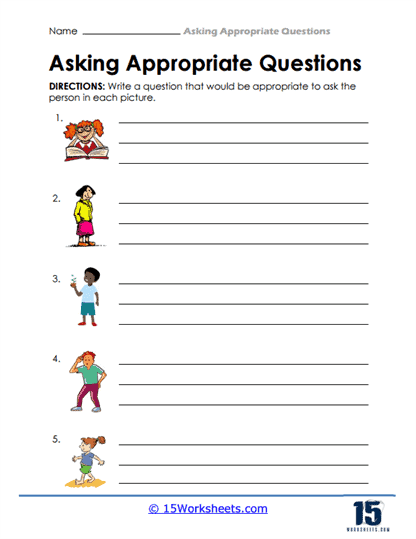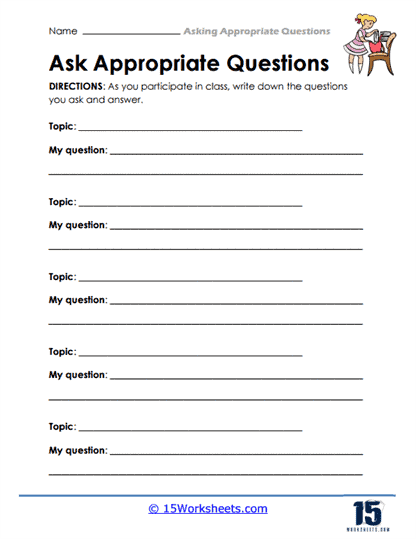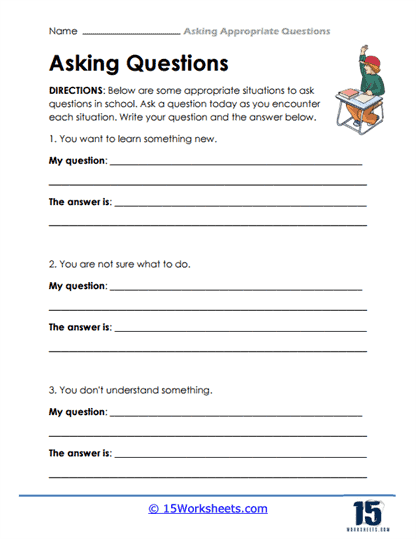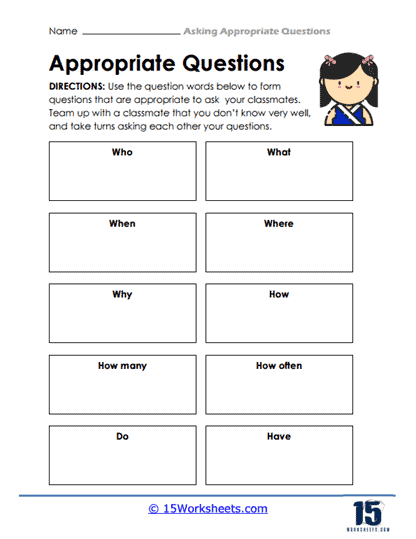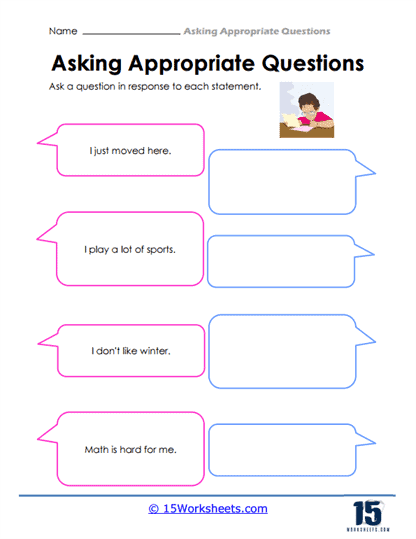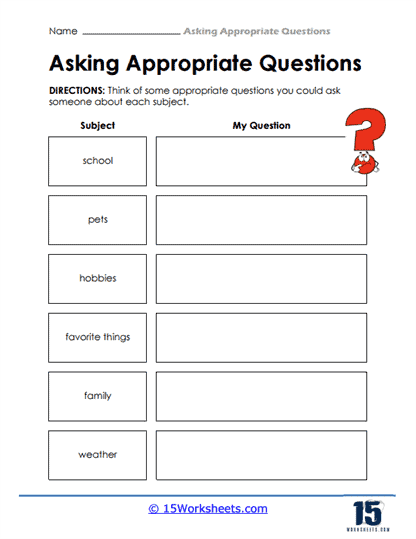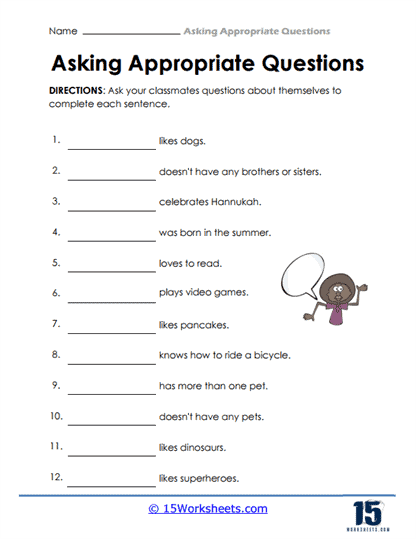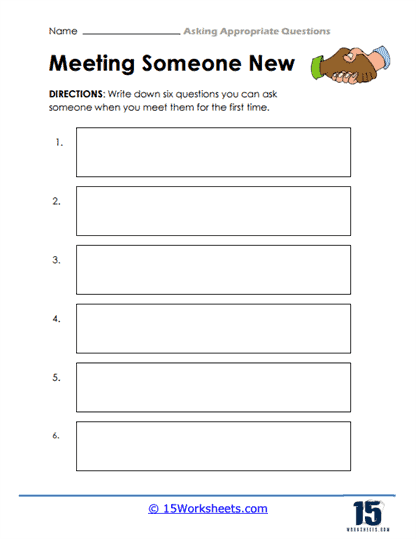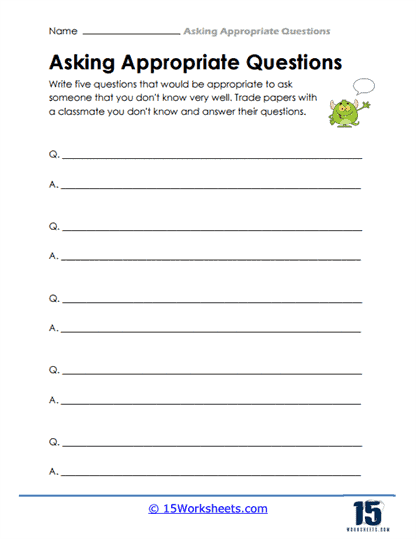Asking Appropriate Questions Worksheets
About These 15 Worksheets
These worksheets are designed to help learners develop their questioning skills. Their primary is to guide learners in formulating questions that are relevant, clear, and purposeful. This is an important skill, as asking the right questions can help facilitate effective communication, deeper understanding, and critical thinking.
They consist of 3 primary types of tasks:
Scenario-based exercises – These exercises involve reading a brief scenario or story, after which the learner is asked to formulate relevant questions based on the information provided.
Question formulation exercises – These exercises provide learners with a topic or subject, and ask them to come up with different types of questions (open-ended, closed-ended, probing, clarifying, etc.) related to the topic.
Question evaluation exercises – These exercises provide learners with a list of questions, and ask them to evaluate the effectiveness of these questions. This could involve determining whether the questions are open-ended or closed-ended, or ranking the questions based on their relevance or clarity.
How to Form Appropriate Questions
Forming appropriate questions is an important skill to have, whether for academic, professional, or personal purposes. Here are some steps to help you form appropriate questions:
Identify the Purpose – Before forming your question, decide what you want to find out. Your question could be meant to gather information, clarify a misunderstanding, explore someone’s opinion, etc. Knowing the purpose of your question will guide its formation.
Decide on the Type of Question – Based on your purpose, you’ll need to decide whether you should use an open-ended or a closed-ended question. Closed-ended questions can be answered with a “yes” or “no” or other short response, while open-ended questions require a more detailed answer and often lead to a more in-depth discussion.
Make Your Question Specific – Vague questions can lead to confusion and may not get you the information you want. Be as specific as possible with your question to make it easier for the other person to understand and answer.
Keep it Simple and Clear – Don’t complicate your question with unnecessary jargon or multiple ideas. If you have more than one thing you want to find out, it’s usually better to ask multiple simple questions rather than one complex question.
Be Neutral – An appropriate question avoids leading the respondent to a particular answer. Try to keep your own opinions or assumptions out of the question.
Check for Assumptions – Make sure your question doesn’t assume something that isn’t known. For example, instead of asking “Why do you like this movie?” to someone who hasn’t stated their preference, ask “Do you like this movie?”
Revise and Practice – After you’ve formed your question, look it over and practice asking it. Does it sound natural and clear? If you were the one being asked, would you understand what is being asked?





